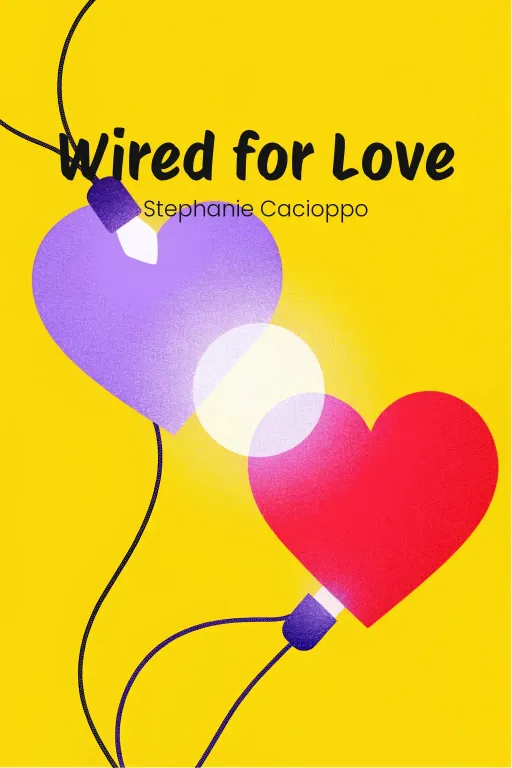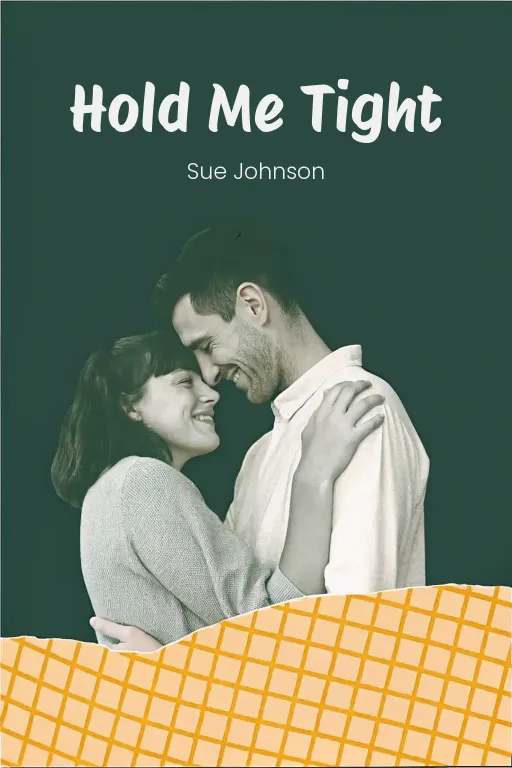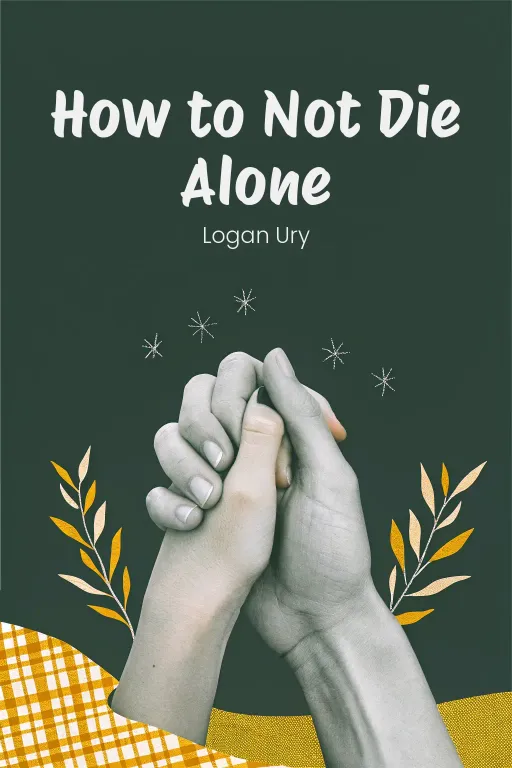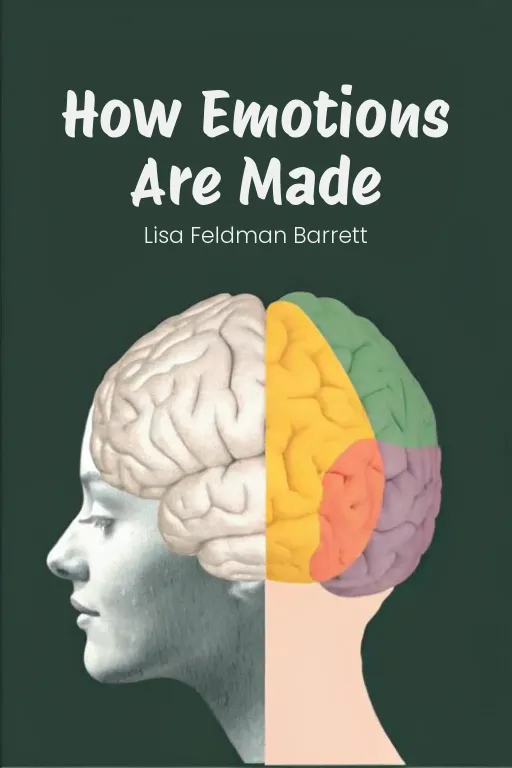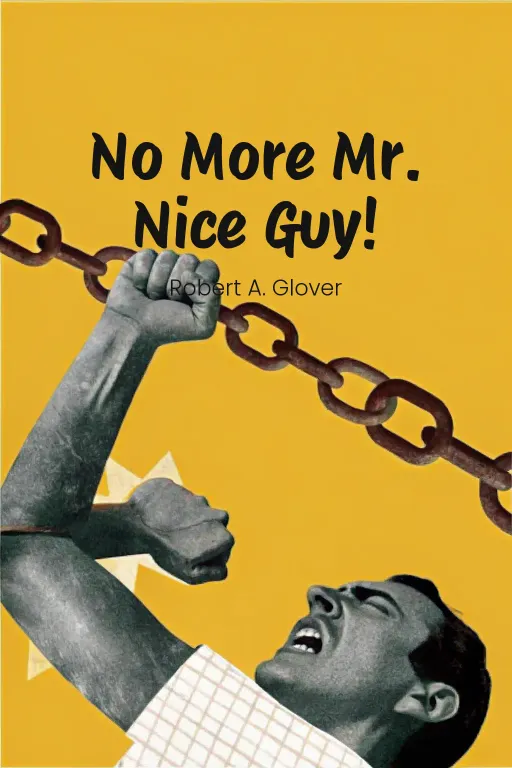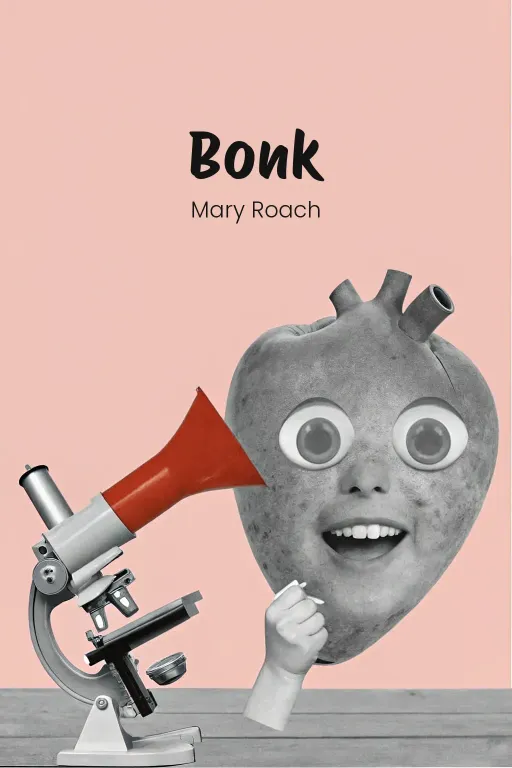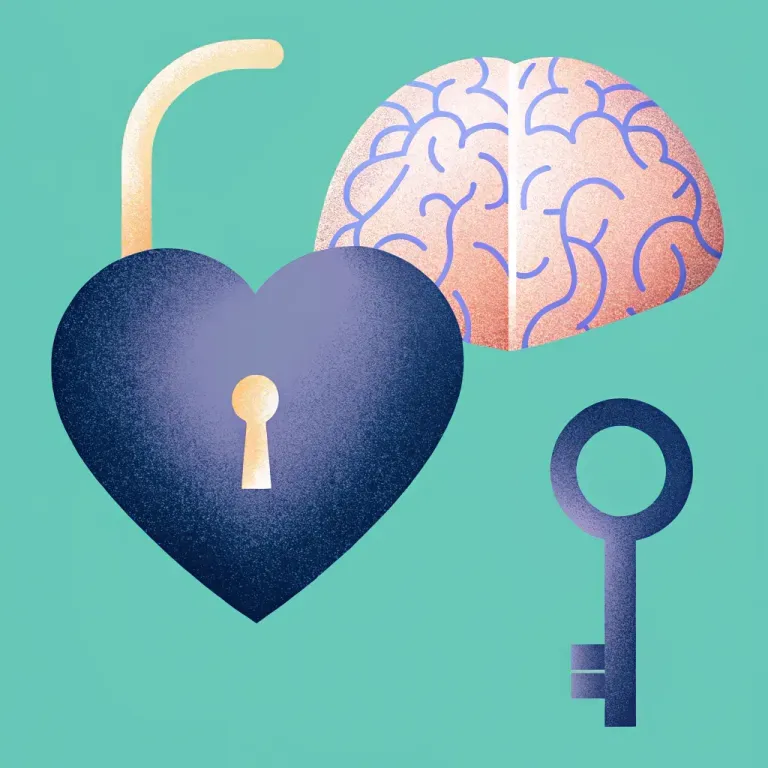
Love & the Brain: Connection Survival Guide
Podcast by The Mindful Minute with Autumn and Rachel
A Neuroscientist's Journey Through Romance, Loss, and the Essence of Human Connection
Introduction
Part 1
Autumn: Hey everyone, welcome to the show! Today, we're really getting into something fundamental: love. No matter your relationship status, love isn't just “a part” of life, it’s actually “hardwired” into our brains. Rachel: Love, huh? And the brain? Are we talking true romance here, or just lab experiments where rats push a lever for a hit of dopamine? Because honestly, some days it really feels like the latter. Autumn: <Laughs> Well, Rachel, in today's book, Wired for Love by Stephanie Cacioppo, actually connects romance and science. She really shows how love isn’t just some fleeting emotion, but a fundamental biological need. She takes us back to how love evolved and brings us right up to its huge impact on our minds and bodies, even when we're grieving. Rachel: So, suddenly love isn’t just a rom-com and a box of chocolates? It's about survival? Now I'm picturing woolly mammoths doing couples therapy. Is there more to unpack here? Autumn: Absolutely! We're going to dig into three big ideas. First, how our brains are literally hardwired to seek connections with others. Second, we’re going to talk about the challenges – and opportunities – that love presents in modern relationships. And finally, we’re going to explore love's incredible ability to heal, even when we’re dealing with loss. So, it’s the science of connection, and the art of bouncing back. Rachel: Sounds comprehensive. We’re talking about love as an instinct, love navigating the mess of modern life, and love helping us rebuild after heartbreak. Alright, Autumn, let’s dive in and really explore this whole "wired for love" thing. I'm ready to be convinced.
The Neuroscience of Love
Part 2
Autumn: Alright, let’s get into the real nitty-gritty. The neuroscience of love isn’t just some fuzzy concept; it's actually rooted in our biology. Understanding how our brains handle love gives us a roadmap, not just for why we connect with each other, but how we do it. It all starts with the social brain hypothesis—it's an idea that really changed how we look at human evolution. Rachel: Okay, hit me with it—social brain hypothesis. Sounds important, but does it explain why, for instance, I can't remember where I put my car keys five minutes ago, but I still remember my childhood best friend’s phone number? Autumn: That’s actually related! It basically says that our brains got bigger and more complex to handle our increasingly complicated social lives. See, anthropologist Robin Dunbar theorized that the size of our neocortex, which is the part of your brain responsible for higher-level thinking, directly relates to the number of social connections we can manage. In other words, we evolved bigger brains to deal with everything that comes with relationships, from hunting together to forming lifelong partnerships. Rachel: So, if I’m understanding you, our ancestors weren't just trying to survive the wilderness; they were [“really” relying on teamwork and connection. These early relationships were just as crucial as discovering tools or fire? Autumn: Absolutely. Think about Ethan and Grace, hypothetically speaking. They were early humans who relied on each other to protect and raise their children. Human babies are totally dependent for a long time. So, Ethan and Grace’s bond ensured their survival as a family unit. They would have been hunting, gathering, and defending each other while staying emotionally connected. That’s what laid the foundation for modern families. Rachel: Wow, so instead of just being convenient, love literally kept our species from dying out. That would explain why we're so obsessed with it. But let's fast forward a bit. How do we see these evolutionary roots in relationships today? Autumn: Well, forming pair-bonds is still the foundation for how most people approach relationships. And it goes deeper than that, though. Neuroplasticity comes into play as it’s not just something we do, it shapes who we become. And love can [“really” facilitate this adaptation. Rachel: Neuroplasticity—another one of those buzzwords we love to throw around. But what does it actually mean? How does love change our brains? Autumn: Okay, think about it this way: When two people share experiences—whether tackling problems together, being supportive, or building intimacy—those repeated interactions will create stronger neural pathways. So essentially, love equips your brain to be better at things like empathy, collaboration, and even just being resilient. Take couples who get through [“really” tough times together. Those shared experiences strengthen their bonds, both on an emotional and a cognitive level, leaving lasting changes in their brains. Rachel: So, love isn't just some sentimental Hallmark card idea; it actually makes people more adaptable and—dare I say—smarter? Autumn: Yes, in a way! Being in a relationship can [“really” build your emotional intelligence—like understanding each other’s needs, managing conflicts, and even communicating more clearly. And over time, that shapes how our brains operate, helping us to grow not just as partners, but as individuals too. Rachel: Okay, but let's shift gears. I know the brain loves its chemistry—so what's literally fueling all of this? Because I've heard love compared to everything from chocolate to actual drugs. What's [“really” going on in there? Autumn: That’s all thanks to neurotransmitters. They're the brain's chemical messengers, and they play a major role in pretty much everything, from initial attraction to long-term connection. Ever wonder why falling in love feels a bit like an emotional roller coaster? You can blame dopamine, oxytocin, and norepinephrine. Rachel: Dopamine, I get. That’s linked to the reward system, isn't it? Like when your favorite team wins or you find twenty bucks in your old coat. Autumn: Exactly. Dopamine’s the "feel-good" chemical, and it's at its peak when you're falling for someone. Brain scans of people in the early stages of love show high activity in the ventral tegmental area—which is filled with dopamine-producing cells. And it's the same system that gets activated by things like food, pleasure, or even addictive substances. Rachel: So, love is literally an addiction? No wonder people do crazy things when they're infatuated. Autumn: Well, it can feel that way. But while dopamine creates excitement, oxytocin is the real glue. It’s known as the "bonding hormone" and gets released during physical affection—holding hands, hugging, even childbirth. It builds the trust and keeps those bonds strong, especially in long-term commitments. Rachel: What about norepinephrine? That one seems to be getting left out here. Autumn: It's crucial, especially at first. Norepinephrine fuels attraction by increasing focus, alertness, and energy. When you're falling for someone, you feel excited and hyper-aware of every detail about them. So, it's a cocktail of excitement and attachment, all orchestrated by these neurochemicals. Rachel: And then there's heartbreak, the dark side of this brain chemistry. So, why does rejection or loss feel like physical pain sometimes? Autumn: It goes all the way back to the brain's survival mechanisms. When love is threatened—whether it's through conflict, breakups, or even grief—your amygdala kicks in, which controls fear and stress. But here's the hopeful part: While heartbreak can be so painful, the brain can heal through staying connected, self-care, and eventually rewiring itself. Rachel: So, even in its lowest moments, love still teaches the brain something? That's actually profound... and also kind of exhausting. Autumn: Exactly. Whether it's growing through challenges or experiencing incredible happiness, love's effect on the brain is always, always dynamic. It’s exactly why it can feel so life-changing over the course of a lifetime.
Love in Modern Relationships
Part 3
Autumn: So, understanding love's biological basis really sets the stage for talking about its impact on modern relationships. I mean, examining current trends is key to bridging that gap between the science and how we actually experience love today. Let's kick things off with something pretty obvious: how relationships are changing, and especially, you know, the rise of single living. Rachel: Exactly, single life is definitely having a moment. It feels like we're constantly bombarded with messages about independence, autonomy—basically, “living your best life” all by yourself. But the numbers are kind of shocking, right? Like, almost half of all adults in the U.S. are single now? That's a “huge” jump from the 50s. What's the deal? Autumn: It's a mix of cultural shifts and, well, practical reasons. Independence is celebrated all the time—people are putting off marriage to focus on their careers or personal growth. But, you know, it's not all roses and freedom. Think about single parents, for example—they're incredibly resilient, but a study in Scotland a few years back found that a lot of them felt pretty isolated. Like, a third were often lonely, and over half felt lonely at least some of the time. Rachel: A third frequently lonely? That's not just a fleeting feeling—that's being stuck in an emotional hole. And it's not just a feeling either, is it? Weren't you saying earlier that being chronically lonely is as bad for you as smoking? Autumn: That's right. Chronic loneliness isn't just about your mental state—it has a direct impact on your physical health. It triggers stress responses, ramps up inflammation, and weakens your immune system. Public health folks are calling it an epidemic because, well, we're just not built to be isolated. Our brains interpret loneliness as a threat to our survival, which sends our amygdala into overdrive. And that stress? It takes a toll—on everything from clear thinking to your heart health. Rachel: Okay, so love, partnerships, even just having someone around—it's not just a nice-to-have. It's basic survival, modern edition. But while some people are wrestling with loneliness, others are jumping headfirst into this wild world of dating apps. Love and algorithms—what a time to be alive. Autumn: Absolutely. Online dating has totally changed how we look for connection. Just between 2015 and 2020, the revenue from dating apps almost doubled—from $1.69 billion to $3.08 billion. That's not a little trend; that's a massive change. By 2020, almost 40% of single Americans were using one of these apps. Rachel: And what are they promising? A soulmate picked out by an AI? Love delivered in 30 minutes or it's free? Autumn: Usually, it's compatibility—these algorithms promise they can match you based on your preferences, your interests, maybe even your specific communication style. But reality doesn't always live up to the hype. A lot of people find the endless scrolling kind of overwhelming, which leads to choice overload. Rachel: Isn't that the whole “paradox of choice” thing? Where having more options is supposed to make you happier, but actually just leaves you paralyzed—or even more dissatisfied. Like standing in the cereal aisle at the grocery store and walking out with... nothing. Autumn: Exactly! And dating apps also feed into something psychologists call FOBO—“fear of a better option.” You swipe on someone who looks promising, but then you start wondering... what if the next profile is even better? This hesitation makes it hard to commit and basically creates a cycle of superficial connections. Rachel: And then, BAM—pandemic strikes! COVID shuts down bars, events, any chance of meeting in person. Suddenly, dating apps are on the front lines of... intimacy? That almost feels like an oxymoron. Autumn: It definitely felt that way at first. But the pandemic actually shook things up a lot. Some people got scared and took a break from dating altogether—FODA, or “fear of dating again.” But for others, it was a chance to really rethink what they wanted from love. Being stuck at home forced people to move beyond quick swipes and actually have meaningful conversations. Rachel: So, instead of “Netflix and chill,” it was hour-long FaceTime calls dissecting movie plots and debating existential dread? Honestly, that sounds exhausting. Autumn: Well, for many people, it was exhilarating! The idea of “apocalypsing” came about—treating every new connection like it might be your last chance at love. It sounds intense, but it often pushed people to be really intentional about their feelings and what mattered to them. Rachel: So, a pandemic silver lining? Makes sense, though. When the world feels uncertain, people start clinging to what—and who—really matters. How ironic that we rediscovered love that way. Autumn: It's a great example of how resilient we are. Even when we're dealing with things like loneliness and digital overload, people adapt because that need for connection is so deeply rooted in us. The pandemic highlighted this tension where technology could create both distance and connection. For couples, especially, it taught us about boundaries—screens brought us closer digitally, but they also got in the way sometimes. Rachel: Oh yeah, it's tough to have a romantic moment with your partner scrolling through Instagram while simultaneously binge-watching TikToks. And all those polished, picture-perfect relationship posts? Those mess with younger people's heads and make them feel like their love “should” look a certain way. Autumn: Absolutely. Social media turns up the volume on insecurity because it often idealizes love. But behind every photo is a real life full of the compromises and effort that real connection takes—something this book really drives home. Rachel: So, bottom line? Love today feels like a balancing act. Old instincts running into new behaviors, romantic ideals bumping up against practicality. But one thing hasn't changed—humans need connection. That's the constant.
The Power of Love in Adversity
Part 4
Autumn: These societal shifts really make you think about how our personal experiences with love shape how we bounce back and grow, you know? Which brings us to today’s big topic: the power of love when things get tough. What's fascinating is how love acts like this thread that ties everything together, whether it’s helping the brain heal after a stroke or giving you the strength to deal with a serious illness. From personal struggles to universal truths, love's unique role in hardship really shows why it's so important for us to thrive as humans. Rachel: Wow, Autumn, that’s a bold claim—love as our ultimate survival tool! But honestly, when you hear stories like Huguette’s or John’s, you can't help but wonder: is love this secret weapon that we just don't talk about enough? But how does this kind of abstract idea of "love" actually translate into real resilience when life totally falls apart? Autumn: Let's start with Huguette's story. After she had a stroke, she developed left-sided neglect, which meant she basically lost awareness of everything on her left side. You can imagine how terrifying that was, especially since she was a painter. Suddenly, she couldn't even see half of her canvas! She felt lost, ashamed, and like she'd lost her identity. But her passion for art was her lifeline, and ultimately, it's what saved her. Rachel: A painter losing half her vision? That's not just a career setback—that's a real existential crisis! So, how did she even begin to recover from that? Autumn: With so much creativity and determination. Her doctor described her brain as a "large house with many rooms," and the stroke had dimmed the lights in some of those rooms. Huguette took that idea to heart and started using her sketchbook to brighten those dark corners. She started drawing every day, slowly retraining her brain to recognize the left side of her world again. Over time, her love for her art became the driving force behind her recovery. It wasn't just about getting her physical abilities back; it was about healing emotionally and finding her sense of self again. Rachel: That’s like, art imitating life in the most direct way possible. She literally redrew her own brain through willpower—and love, I guess. But, you know, the skeptic in me has to ask: couldn’t this just be about discipline? Where does “love” actually get the credit here? Autumn: Discipline was definitely part of it, sure, but love is what kept her going. Huguette's connection to her art wasn't just a transaction, like a job or a hobby; it was deeply tied to who she was. That emotional connection fueled her, even when it felt impossible. And studies actually back this up: when you have a purpose and passion, it activates the reward system in your brain, releasing dopamine and helping to create lasting connections. Love turns just going through the motions into real transformation. Rachel: So, it’s not just the act of drawing, it's the meaning behind it. Okay, that makes sense. But, not everyone is an artist. What about situations where it’s the love between people that gets tested? Autumn: That's the perfect lead-in to John's story. He was diagnosed with stage IV salivary gland cancer, one of the toughest challenges life can throw at you. But, he turned to his relationship with his partner for strength. What's really striking is how love became his emotional anchor, his "why," as his health rapidly declined. Rachel: Stage IV, right? It sounds like a countdown. How did he and his partner even begin to maintain some sense of normalcy, or even hope, in that kind of situation? Autumn: That's where their connection really shone. They focused on enjoying the time they had together and found comfort in small moments of humor and joy. One really touching example was when John, even though he was getting weaker, insisted on giving a lecture. When someone asked him why, he just said, "I did it for you." Can you imagine the emotional strength it took to do that? That love gave him a purpose, even when his body was failing. Rachel: That's… that's really powerful. And yet, somehow, it's also uplifting in a real, almost primal way. But let’s not forget the science here – this isn’t just about feelings, right? There’s actual evidence that love can protect us from stress and illness. Autumn: Exactly. Studies consistently show that having meaningful relationships boosts your immune system, reduces stress, and can even improve your chances of surviving a chronic illness. For example, there was a study published in Health Psychology that found that married people had survival rates were up to 2.5 times higher than single people after major surgery. That's where the biology of love lines up with its emotional and psychological aspects—it really does help keep us alive longer. Rachel: So love isn’t just this emotional safety net – it’s a biological defense mechanism too? That’s kind of mind-blowing. But we've talked about recovery and survival, but what about transformation? Does love actually change us, even when we're not facing something terrible? Autumn: Absolutely, no question. Both Huguette’s and John’s stories illustrate how love can transform adversity into profound growth. For Huguette, art wasn't just therapy; it redefined her resilience and her sense of purpose. For John, love gave him dignity and courage, turning moments of despair into something deeply meaningful for both him and his partner. Transformation doesn't erase the pain, but it gives it direction. Rachel: And that direction, I imagine, is what makes the whole thing bearable. But here’s a philosophical curveball: if love teaches us and even heals us, does its impact ever really stop? I mean, what about after a loss, or a separation? Autumn: That's what's so beautiful about love: it leaves a lasting impression, even when it's gone. The neural pathways that were created through connection stay there, kind of like memories of someone you loved. Psychologists often describe love as a roadmap for resilience. Whether it's through shared laughter, partnerships, or individual passions like Huguette's art, love equips us to rebuild, even after we've lost what started it all. Rachel: So love never really “ends,” huh? It sticks around shaping us. Makes it less like a Hallmark card and more… evolutionary, almost poetic in its persistence. Autumn: Poetic, scientific, and essential all at once. Love isn’t just some sentimental idea; it’s a lifeline that reminds us who we are at our best, whether we’re together or alone.
Conclusion
Part 5
Autumn: So, Rachel, today we really dug into love, right? From the biology behind it, to the struggles it faces in modern relationships, and even how it can transform us when things get really tough. We explored how our brains are wired for love, how modern life tests that, and how even in the darkest times, love can heal and change us. Rachel: Yeah, and it's not just all hearts and flowers, is it? Love actually rewires our brains, makes us healthier, and pushes us to grow. Whether we're talking about why our ancestors paired up to survive, or dealing with heartbreak in this age of dating apps, love is more than just a feeling. It's what drives us forward. Autumn: Exactly. And if there's one thing I hope people take away from this, it’s that love isn't just about finding “the one,” or the right “thing” – it's about actually nurturing it. In our relationships, in what we’re passionate about, in our sense of purpose. Love calls on us to connect deeply, be fully present, and keep choosing that connection. Even when it's hard or painful. Rachel: And maybe in that mess, we find some clarity, right? Love isn't about perfection; it's about sticking with it. So, whether you're just starting a new relationship, picking up the pieces after a loss, or just reconnecting with something you're passionate about, remember that it's all shaping you. Autumn: Love as a roadmap for resilience. Huh, that’s a pretty powerful way to put it. Until next time, keep being curious. Keep connecting with others. And really dive into the things that expand your mind and your heart. Rachel: And remember, everyone, even if love feels like a total rollercoaster sometimes, it’s one of the few things evolution actually got right. Catch you next time.



